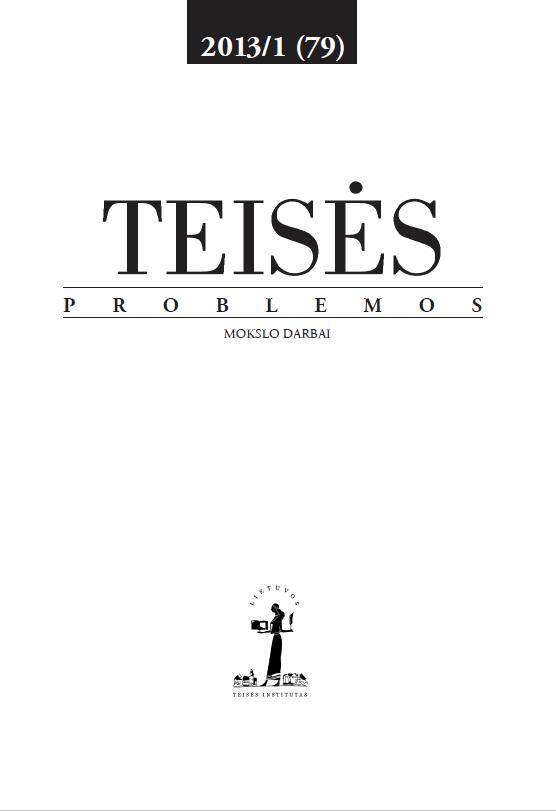Permąstant sankcijas už kontrabandą: proporcingumo problema (II). Konfiskavimo ir mokestinių priemonių taikymo klausimai
Rethinking Sanctioning for Trafficking of Goods: the Problem of Proportionality (II). Issues of Confiscation and Tax Duties
Author(s): Skirmantas BikelisSubject(s): Criminal Law
Published by: Lietuvos teisės institutas
Summary/Abstract: The second paper continues to deal with the issues of proportionality of the system of sanctions and measures that are applied for offenders who were found guilty for trafficking of goods. The paper is based on the research of judgements in criminal cases for trafficking in Lithuania which came into force in 2009-2011. This paper challenges issues of confiscation and taxation. Firstly confiscation of goods of legal origin is challenged. In some cases The European Court of Human Rights has already declared such confiscation as infringing the right to property. However Lithuanian laws still provide that confiscation of trafficked goods is imperative in all cases without any regard to their origin. Some examples of evidently disproportional confiscation were presented. Secondly issues of proportionality of value confiscation are examined. In contrast with the German and Austrian laws, Lithuanian Criminal Code does not provide the right of the court to refuse to apply or limit confiscation of the instrumentalities of trafficking considering special circumstances of the case with regard to principle of proportionality. As the result some decisions were passed where value of highly expensive vehicles has been confiscated from drivers, who appeared to be nothing more than little paid accessories, hired by unknown organizers of the trafficking. Finally the rule of Customs Code of EU which provides that confiscated goods are still taxable is discussed in light of principles non bis in idem and proportionality. The author proposes to develop mechanisms of control of criminal gains in order to target the key players of illegal business and possessors of the criminal wealth rather than focus on punishment of perpetrators who in most cases appear to be second – role relatively little paid players.
Journal: Teisės problemos
- Issue Year: 2013
- Issue No: 79 (1)
- Page Range: 43-57
- Page Count: 15
- Language: Lithuanian

